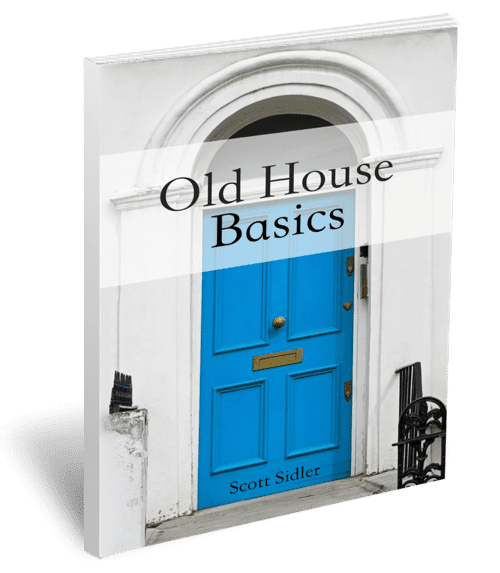 You may think that historic preservation and the preservationists that adhere to its sometimes kitschy principles are stuck in the past, but that couldn’t be further from the truth. You see, I’m going to let you in on a little secret: preservation is not about the past, it’s about the future.
You may think that historic preservation and the preservationists that adhere to its sometimes kitschy principles are stuck in the past, but that couldn’t be further from the truth. You see, I’m going to let you in on a little secret: preservation is not about the past, it’s about the future.
Yes, those stodgy preservationists may be as annoying as mosquitos sometimes. Depending on where you live, they may tell you what colors you can paint your house. They may thwart your plans for that big addition to your old house. They may even stop a developer from starting on that cool new project the town has been talking about.
Even though they may do all that, I posit to you that they are not desperately stuck in the past backward thinking people afraid of change. When you look at it from their perspective, you might even say they are really futurists. Here’s why…
The Story of You
Our personal story is what makes us who we are. Think of everything you’ve gone through, both good and bad, throughout your life and how each of those experiences have made you who you are today. Each of those old boyfriends or girlfriends prepared you to find your spouse (yes, even the awful ones!)
The time you learned to ride a tricycle, then a bicycle, then a car! It’s all moving you forward along your life’s story. Each piece inextricably linked to the decisions you make today. Even why you look both ways before crossing the street is a part of that story.
Now, imagine you woke up tomorrow and all those stories were gone. 20 or 40 or 60 years memories just magically gone out of your head. Poof! When you sit down to breakfast that fateful morning, how could you choose what to eat? After all, you don’t remember what cereals taste like. Is Captain Crunch sweet or spicy? Do you even like spicy?
What about that neighbor who asks to borrow a tool? Are they trustworthy? You don’t know that they have borrowed countless tools and lost or broken them over the years, so you hand over your new lawn mower because that’s what nice neighbors do.
You see where this is going, right? A person with no memory is a tragedy waiting to happen. And the same goes for a town or a country without a memory.
“A city without old buildings is like a man without a memory.” – Graeme Shankland
The Story of Our Towns
The story of our cities and towns are under constant attack and always will be. In our relentless march toward the future, we are quick to destroy the past. Not because we despise it, but because we don’t recognize its value.
The old building of our generation may seem old and tired to us, but to the next generation, who wasn’t there when they were built, they are a time machine. A time machine that lets them glimpse into the past in way that no book could ever do. They are a physical presence of the past, sometimes long past, still standing in the present world.
In order to make plans for the future, you must first understand the past. You have to see the mistakes and successes of the past first before deciding on a track for the future. Without that perspective, you are doomed to repeat the same failures over and over.
Our historic buildings give us a sense of our place in time. They let us know that this town, this country, this planet is not ours, but rather it is on loan from our children. We see that there were people here before us and because of that, we can more easily grasp the idea that there will be people here after us.
The Future From The Past
All of the people from the past have gone now. We humans have a short time on this planet, and then at some point, we tell our last story, share our last piece of wisdom, and we are gone.
What can we leave behind? Hopefully, a legacy of teaching the next generation right from wrong among other lessons, but our physical presence is gone. Whereas with our historic buildings, we can still visit them and touch them and experience them with all our senses for centuries or in some cases millenia.
They help us put into context the stories we have heard and the lessons we have learned. They matter because they are the only physical pieces of the past that remain. They let us know, “Yes, it really was that way.” They give us a place to start, and tell us which direction the future is. They prepare us for tomorrow, give us motivation to be better than we were yesterday. They are the measuring stick of our successes and our failures and our compass in the woods.
Let’s keep them around as long as we can because “If you don’t know history, then you don’t know anything. You are a leaf that doesn’t know it is part of a tree. ” – Michael Crichton

Founder & Editor-in-Chief
I love old houses, working with my hands, and teaching others the excitment of doing it yourself! Everything is teachable if you only give it the chance.


I always wonder if, decades from now, people are going to think boring 90s ranches and 00s McMansion style was charming. It’s hard to imagine.
Very true. We shall have to wait and see!